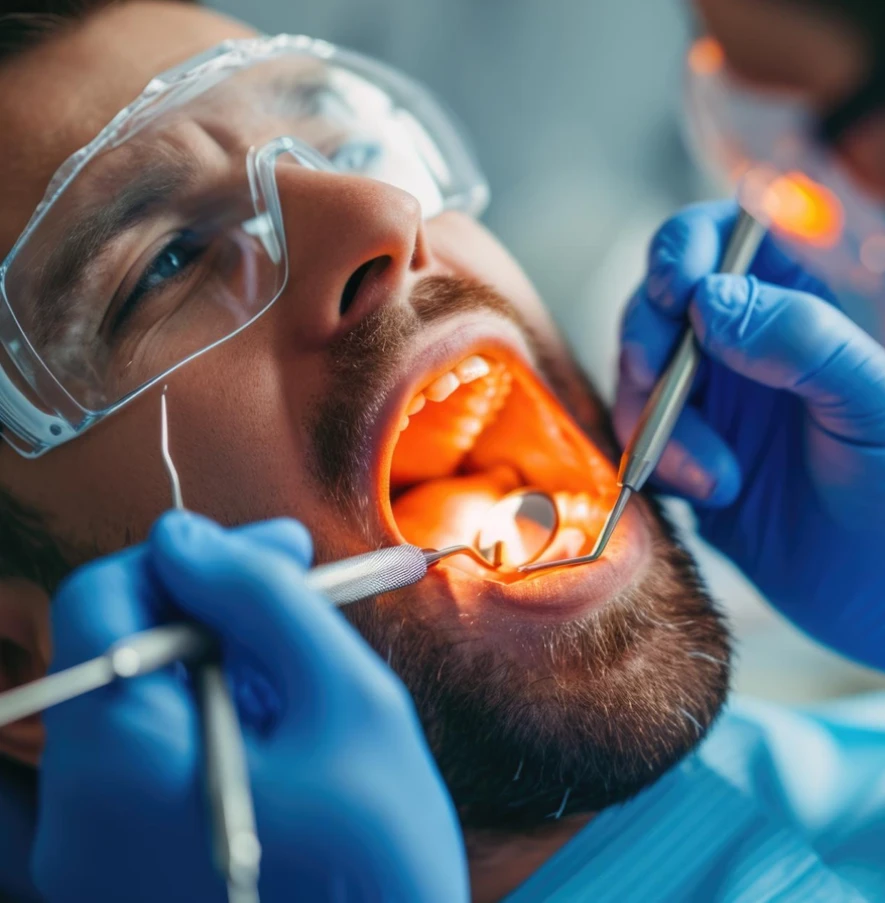Dental Cleaning




Dental Cleaning
Dental cleaning, also known as prophylaxis, is a preventive procedure performed to thoroughly clean the teeth and gums. It helps remove plaque, tartar, and bacteria that build up over time, reducing the risk of cavities, gum disease, and bad breath.
Regular cleanings, typically recommended every six months, are essential for maintaining healthy teeth and preventing more serious dental issues. The procedure is quick, painless, and a vital part of your overall oral health care routine.
During the cleaning, a hygienist uses specialized tools to scale away hardened deposits and polish the teeth for a smooth, clean finish.

Who Needs Dental Cleaning?
Dental cleanings are important for everyone, regardless of age. Regular cleanings help prevent disease and detect problems early. However, some people may benefit even more from frequent cleanings.
- People prone to plaque and tartar buildup
- Individuals with gum disease or bleeding gums
- Patients with braces or other dental appliances
- Smokers or people with poor oral hygiene habits
- Anyone wanting to maintain fresh breath and a clean smile
What Happens During a Dental Cleaning?
A dental cleaning includes plaque and tartar removal (scaling), teeth polishing, flossing, and fluoride treatment. In some cases, digital X-rays may also be taken to assess underlying issues.
Why is Dental Cleaning Important?
Regular cleanings help prevent cavities, gingivitis, and bad breath. They also reduce the risk of gum disease and can improve overall health, as oral health is closely linked to heart and immune system health.
Want to schedule an appointment?
Appointment


